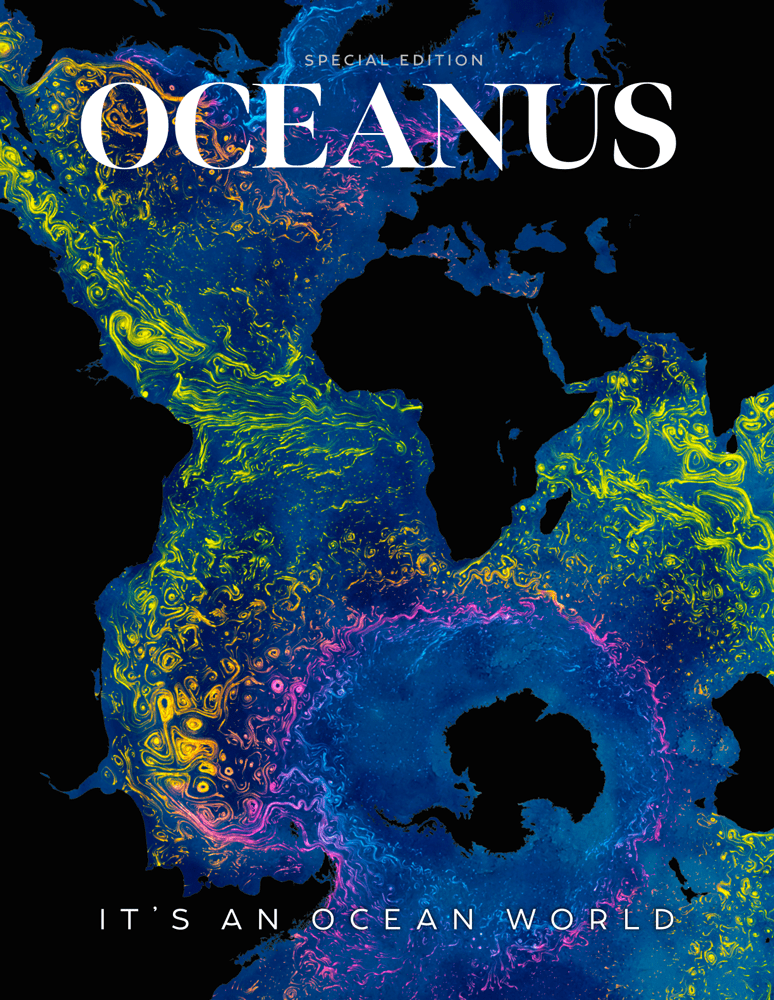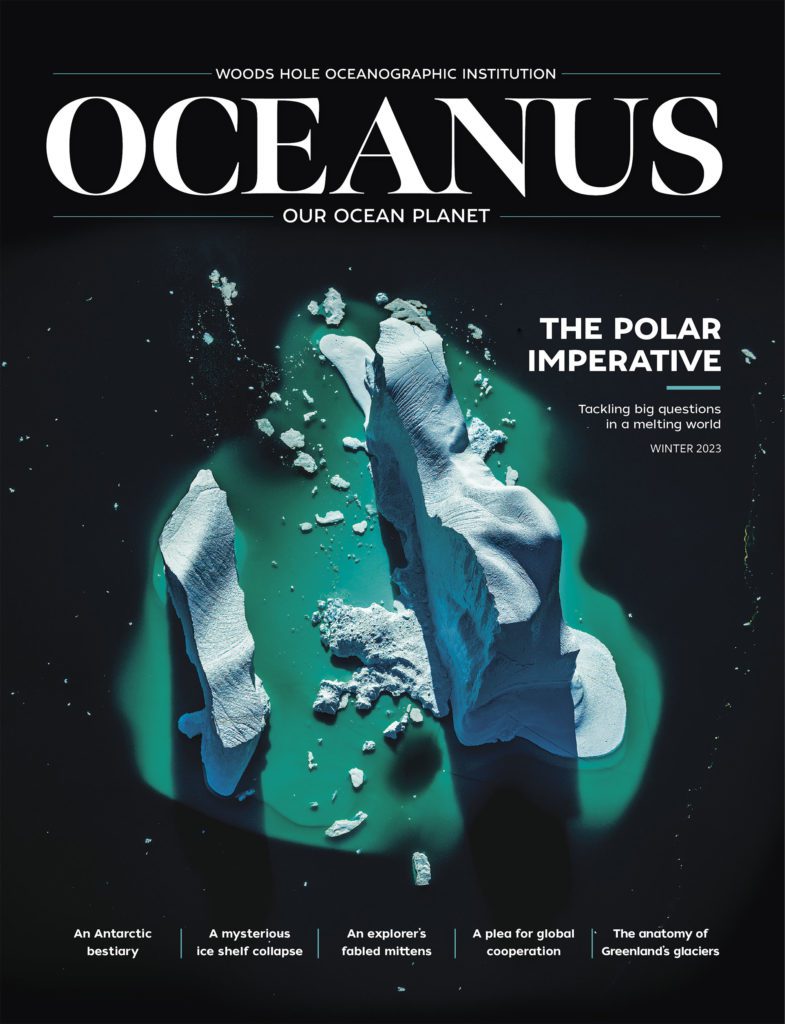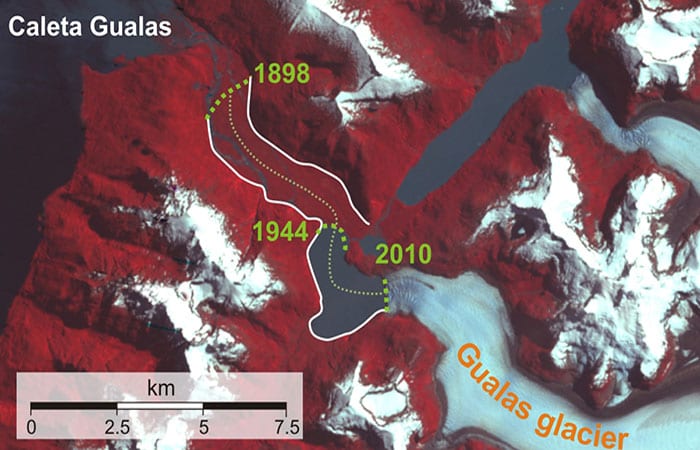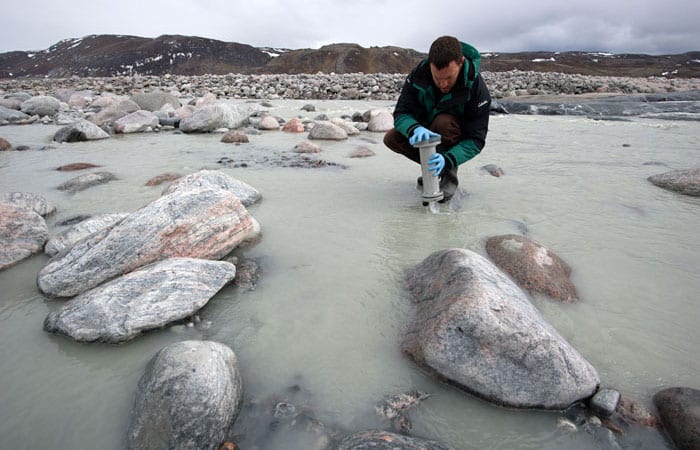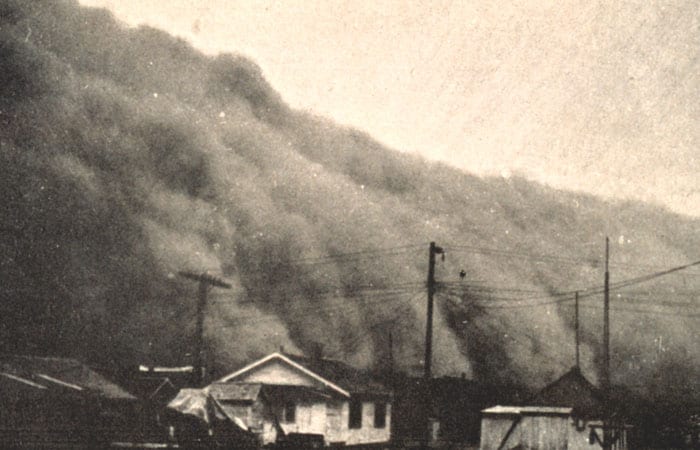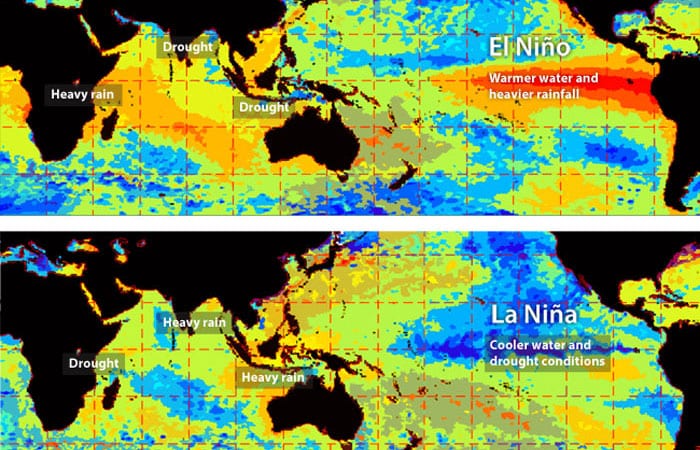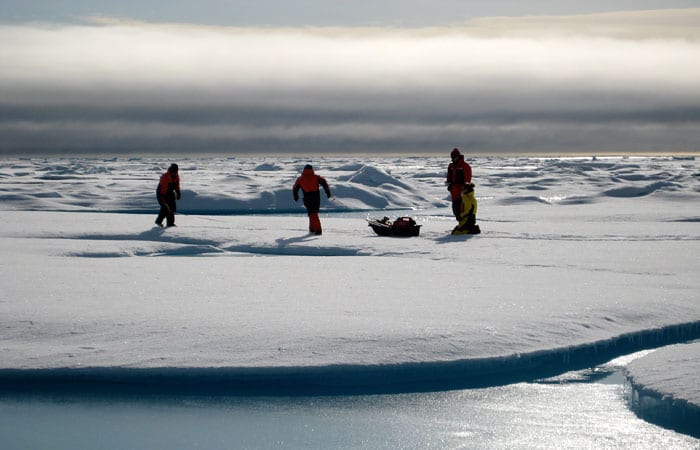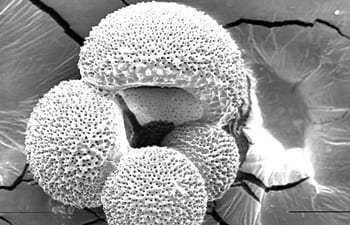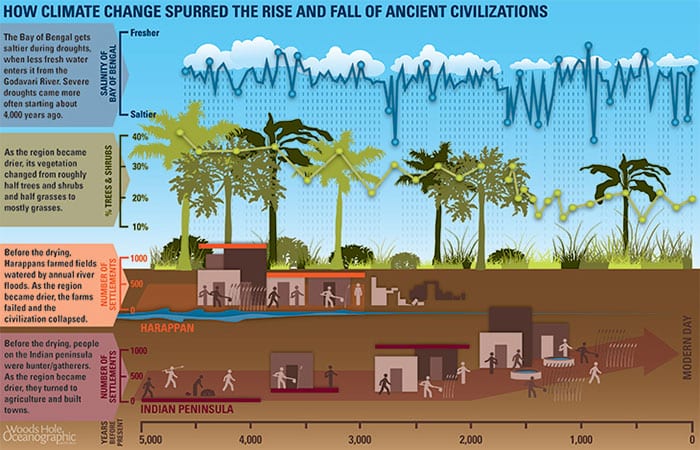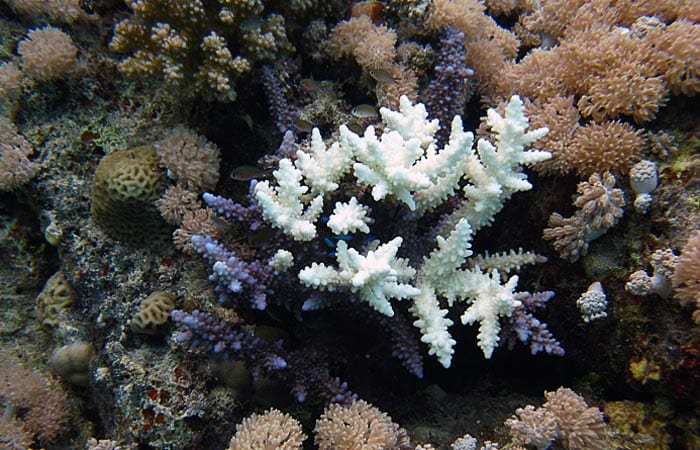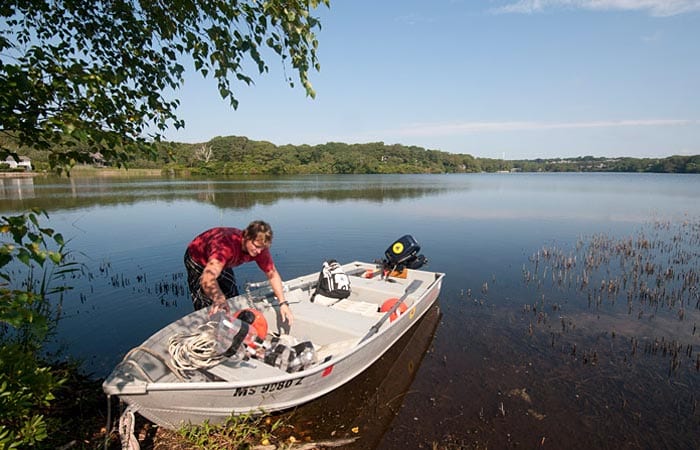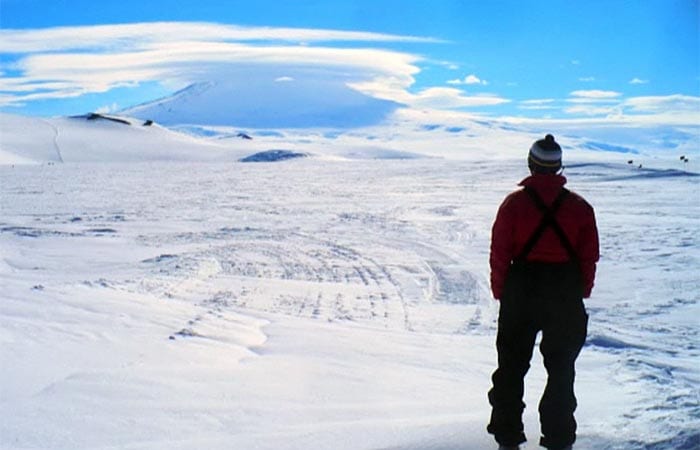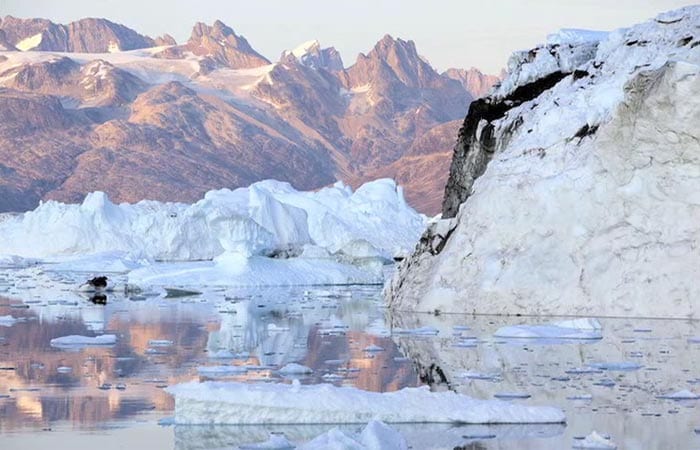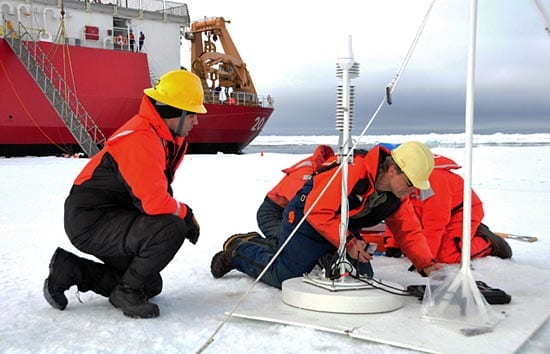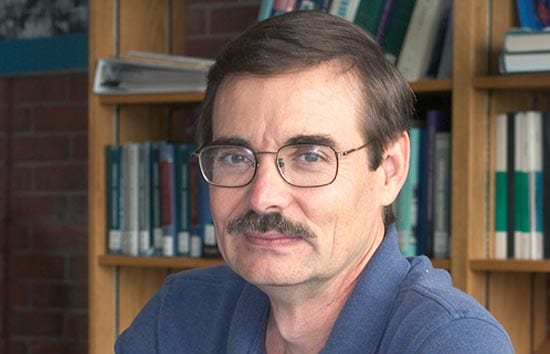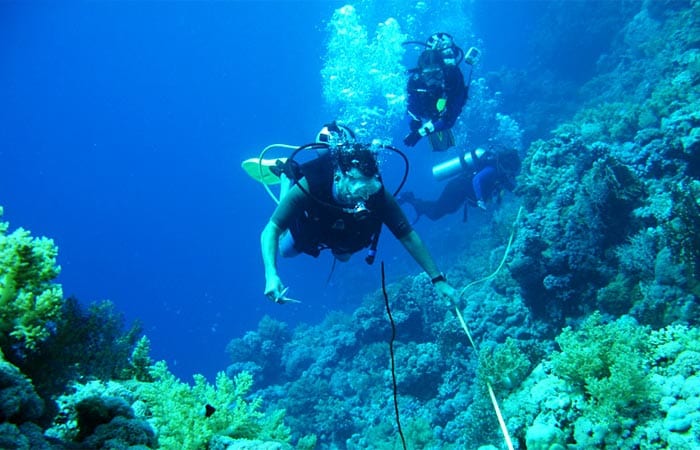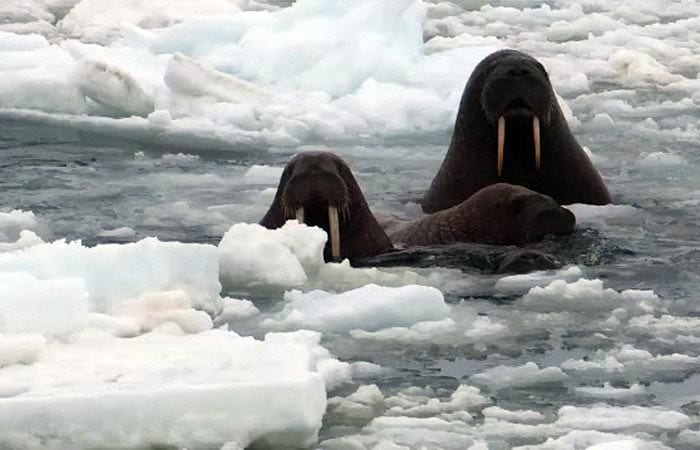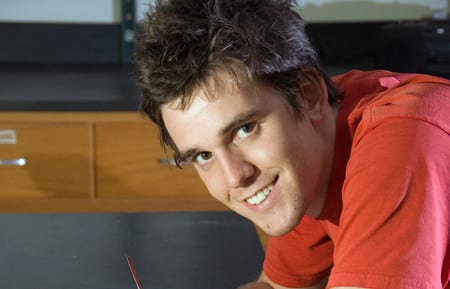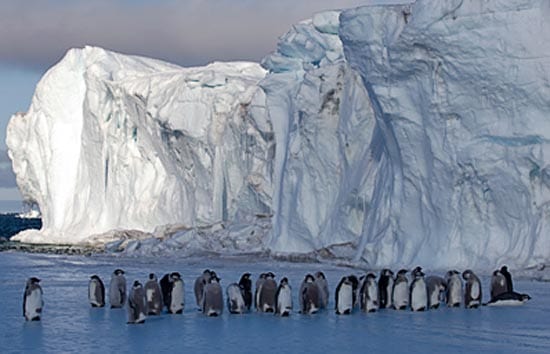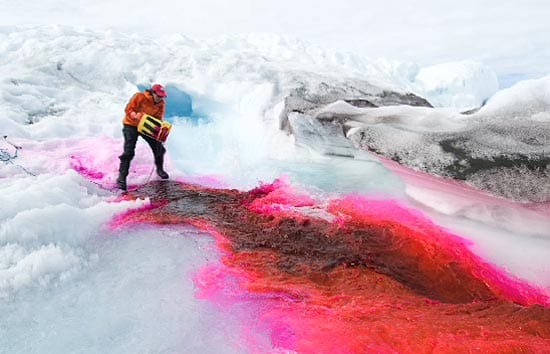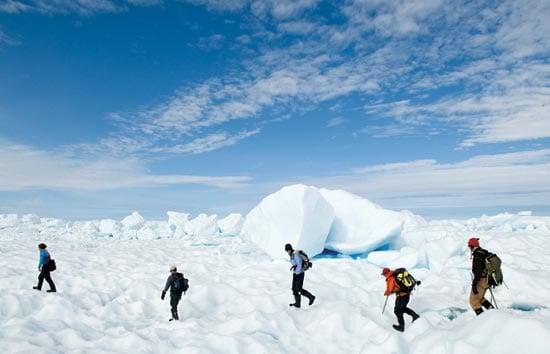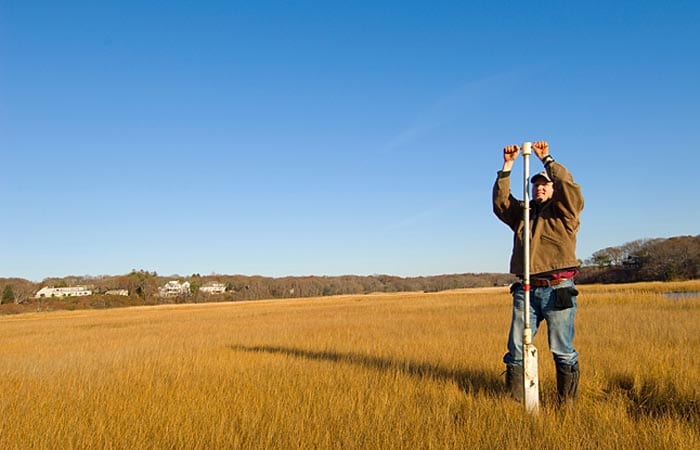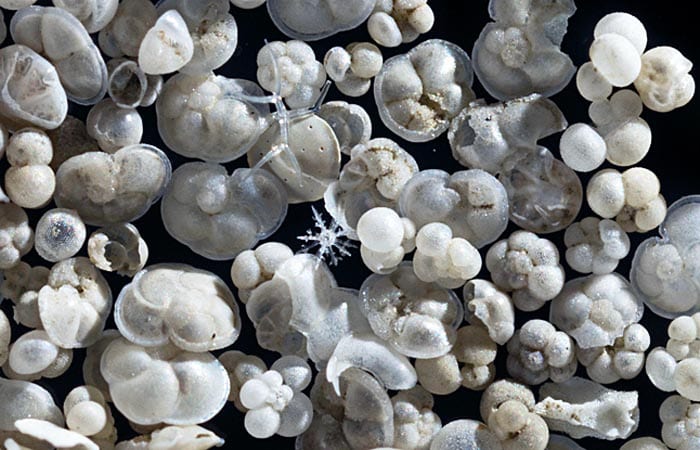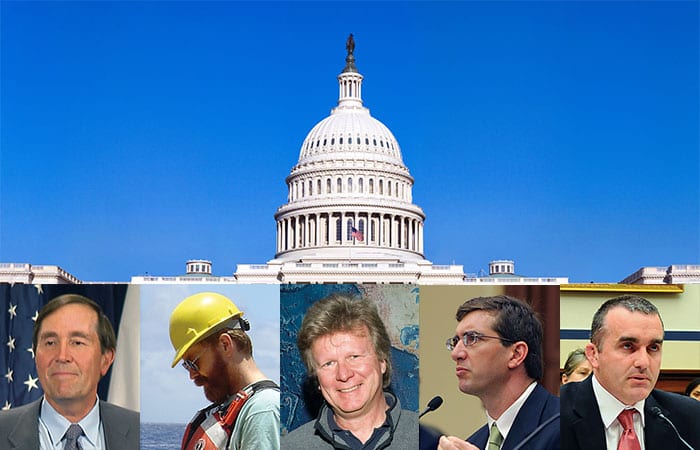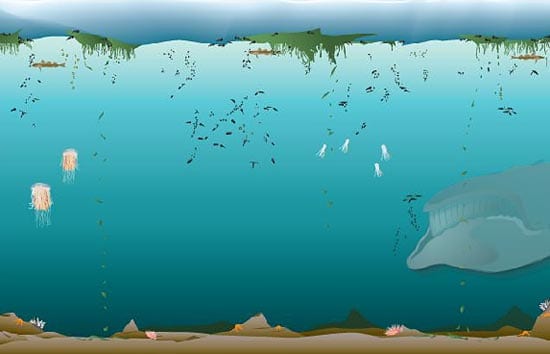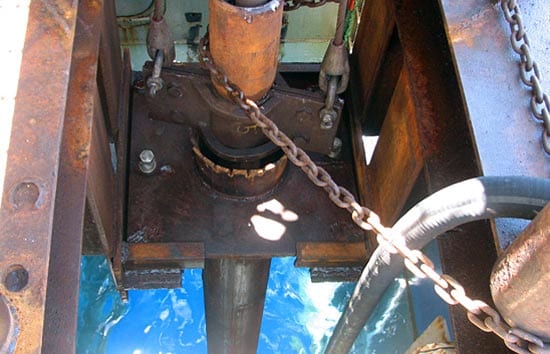Oceanus Online Archive
The Retreat of the Gualas Glacier
Like many mountain glaciers, the Gualas Glacier in the Patagonian region of Chile has retreated fast during the past century in the face of climate change. But not only for…
Read MoreThe Glacial Chronicles
Graduate student Benjamin Linhoff spent several months in the summers of 2011 and 2012 studying a glacier at a remote camp on the Greenland Ice Sheet. Here are some excerpts…
Read MoreStorms, Floods, and Droughts
The source of the rain that filled your town reservoir, or flooded your nearby river, or never arrived to water your crops, is most likely the ocean. The ocean contains…
Read MoreNew Weather-Shifting Climate Cycle Revealed
Scientists have uncovered evidence for another natural cycle that, like El Niño and La Niña, shifts Pacific Ocean winds and currents and rearranges rainfall and weather patterns around the globe.…
Read MoreFollow the Carbon
“Carbon is the currency of life,” said David Griffith, a marine chemist at Woods Hole Oceanographic Institution (WHOI). “Where carbon is coming from, which organisms are using it, how they’re…
Read MoreMentors for Budding Scientists
For the fourth consecutive year, local high school students interested in science spent part of their summer vacations working on projects undertaken with Delia Oppo’s lab at Woods Hole Oceanographic…
Read MoreClimate Change Spurred Fall of Ancient Culture
The Harappans may be the most advanced ancient civilization that most Westerners have never heard of. They flourished in the Indus River basin on the Indian subcontinent around the same…
Read MoreCoral Sanctuaries in a Warming World?
Climate scientists have predicted that ocean temperatures in the equatorial Pacific will rise significantly by the end of the century, wreaking havoc on coral reef ecosystems. But a new study…
Read MoreTo Catch a Hurricane
On Aug. 25, 2011, the line projecting Hurricane Irene’s path up the East Coast barreled smack into Woods Hole, Mass., spurring a whirlwind in Jeff Donnelly’s lab at Woods Hole…
Read MoreExploring the Arctic in the Midst of Change
Chief Scientist Bob Pickart and his 26-member science team were in the hangar at the Barrow Air Search and Rescue Station, waiting for the helicopter. An Inupiat community barnacled to…
Read MoreScience in Service to the Nation
In 1863, as the Civil War raged, Congress established the National Academy of Sciences (NAS), an honorary society of scholars that any government department could call upon to “investigate, examine,…
Read MoreSam Zipper
It might seem strange that Sam Zipper spent his summer on balmy Cape Cod studying the western Canadian Arctic. But for Zipper, examining sediment cores from the Mackenzie River Delta…
Read MoreGetting to the Bottom of the Greenland Ice Sheet
Greenland—the world’s largest island—is also home to one of the world’s largest ice sheets (after Antarctica). If Greenland’s two-mile-thick ice sheet melts completely, it would ultimately raise global sea level…
Read MoreHurricane Hunter
Soon after they married, Jon Woodruff asked his new wife Akiko Okusu if she’d like to take a trip to her native Japan. Not for a belated honeymoon, but to help…
Read MoreA Tale of Two Oceans, and the Monsoons
Every summer, the continent of Asia takes a big breath. This inhalation pulls moisture-laden air from the Indian Ocean over India and Southeast Asia, causing torrential rains known as the…
Read MoreWHOI Scientists Bring Expertise to Capitol Hill
Several WHOI scientists have traveled to the nation’s capital, supplying Congress with scientific information and advice on problems ranging from toxic algae and oil pollution in the oceans to climate…
Read MoreWill Climate Change Disrupt the Arctic Ecosystem?
After long, dark winters, sunlight returns to the Bering Sea in spring, re-launching a bountiful food chain that fills the Arctic with life. In March 2008, an ambitious research team,…
Read MoreKnorr Shoots the Moon (Pool) to Drill for Coral
The Knorr’s so-called “moon pool” is a section of the hull that can be removed to give scientists direct access from the deck to the sea.
Read More